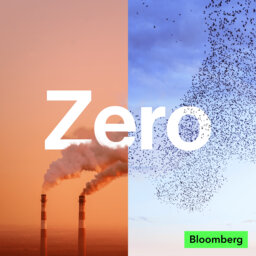True crime is one of the most popular genres in every form of storytelling. But can that pull be used to tell stories about the environment? This week, Akshat speaks with Amy Westervelt, a climate reporter for over twenty years, and the creator of the podcast Drilled - a true crime show about climate change. Westervelt launched it after being turned away by large production companies but found over a million listeners in the first season.
This is the second of three episodes talking with climate storytellers on Zero. Listen to hear why and how Westervelt decided to use “true crime” as a way to talk about Big Oil, the history of climate denial, and how reporting on the climate crisis has changed for the better.
Read More:
- Climate Activists Say Big Oil Is Taking Cycling Fans for a Ride
- Check out Drilled
- Check out the first episode in the series with Kim Stanley Robinson
- A transcript of this episode
Zero is a production of Bloomberg Green. Our producer is Oscar Boyd and our senior producer is Christine Driscoll. Special thanks to Kira Bindrim. Thoughts or suggestions? Email us at zeropod@bloomberg.net. For more coverage of climate change and solutions, visit bloomberg.com/green
In 1 playlist(s)
Zero
Zero is about the tactics and technologies taking us to a world of zero emissions. Each week Bloombe…Social links
Follow podcast
Recent clips

Ethiopia’s fossil fuel car ban is a vision of the future
32:37

Do artists have a duty to be political? Imagine series
32:37

Electricity is now holding back growth across the global economy
39:13
 Zero
Zero